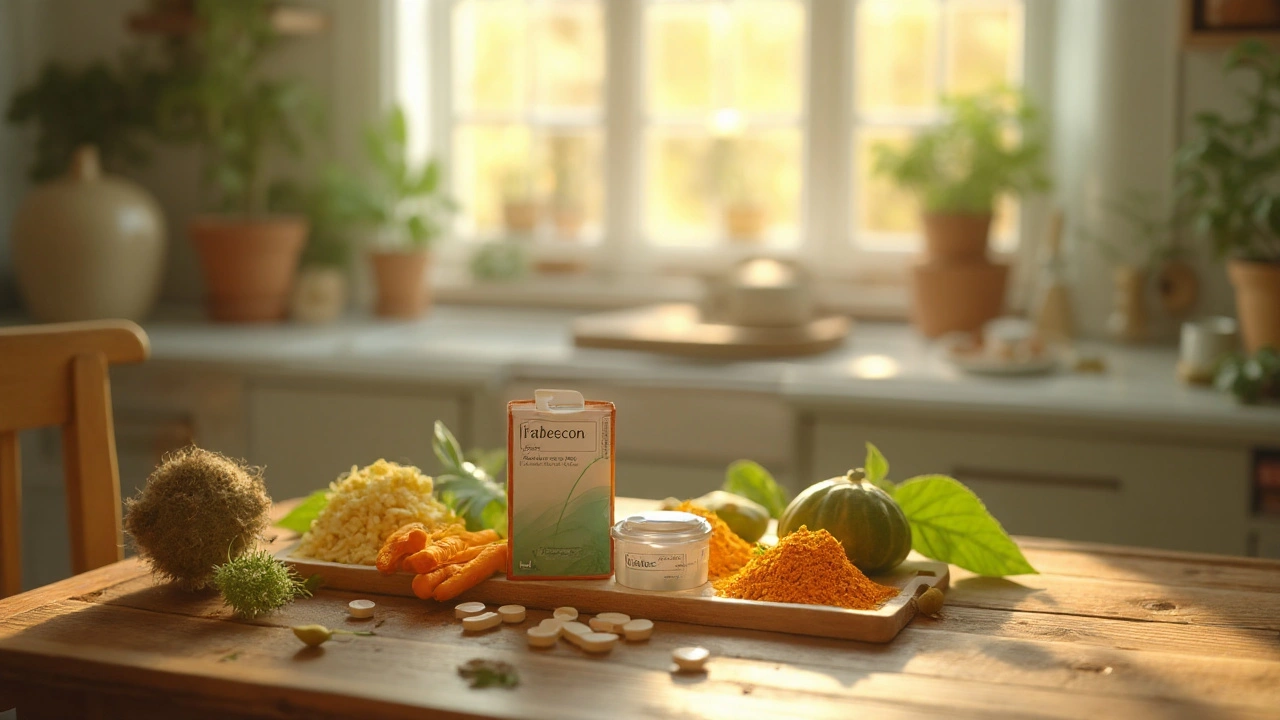Natural Remedies: Easy, Effective Ways to Support Your Health
Ever wonder if there’s a gentler way to handle a headache, a cough, or a skin concern? Natural remedies can be that middle ground—simple, often inexpensive, and backed by real‑world experience. You don’t need a pharmacy degree to pick a herb or a supplement that fits your routine. Below you’ll find quick, practical advice you can start using right away.
Why Choose Natural Remedies?
First off, natural options usually have fewer side‑effects than prescription drugs. Many plants and nutrients work with your body’s own chemistry, so they tend to be easier on the gut, the liver, and the brain. They’re also great for people who want to avoid over‑medicating or who want to supplement a conventional treatment. For example, lutein—a pigment found in leafy greens—has solid evidence for protecting eye health without the risks of synthetic eye drops.
Another plus is accessibility. A bottle of probiotic powder, a handful of dried herbs, or a capsule of bistort can be bought at most health stores or ordered online. You’ll see the same ingredients that doctors talk about in research papers, just packaged for everyday use.
Top Natural Options to Try Today
1. Lutein for Vision Support – If you spend a lot of time in front of screens, lutein can help keep the macula healthy. Aim for 10 mg per day, which you can get from supplements or foods like kale, spinach, and egg yolks.
2. Bistort for Digestion and Immunity – This root is rich in antioxidants and has been used to soothe the gut. A tea made from 1‑2 grams of dried bistort steeped for 10 minutes is a gentle way to start.
3. Tree of Heaven (Ailanthus altissima) Supplement – Some people use a small dose of this extract for energy and joint comfort. The safe range is usually 200‑400 mg per day, but start low and watch how you feel.
4. Probiotics as a Flagyl Alternative – When you need to tackle bacterial imbalances, a high‑quality probiotic with strains like Lactobacillus rhamnosus and Bifidobacterium longum can be a gentler path than antibiotics. Take one capsule with a meal, and keep it consistent for at least four weeks.
5. Herbal Anti‑Inflammatory Blend – Turmeric, ginger, and cinnamon mixed into a morning smoothie can reduce general inflammation. Use ½ tsp of turmeric powder, a thumb‑sized piece of fresh ginger, and a pinch of cinnamon daily.
When you add any new supplement, check the label for purity, and if you’re on prescription meds, talk to your doctor first. Interactions are rare but possible, especially with herbs that affect blood clotting.
Finally, remember that natural remedies work best as part of a broader healthy lifestyle. Pair them with good sleep, balanced meals, and regular movement. You’ll notice improvements faster when everything clicks together.
Want a quick start? Pick one remedy from the list, try it for two weeks, and keep a simple journal of how you feel. Notice changes in energy, digestion, or sleep? That’s your personal data telling you what works best. Adjust the dose or try another herb, and keep building a toolbox of safe, natural options that fit your life.

Diabecon: Natural Herbal Supplement for Diabetes Control and Support
A deep dive into Diabecon—what it is, how it works, and whether it's effective for managing diabetes. Tips, risks, and expert advice included.
